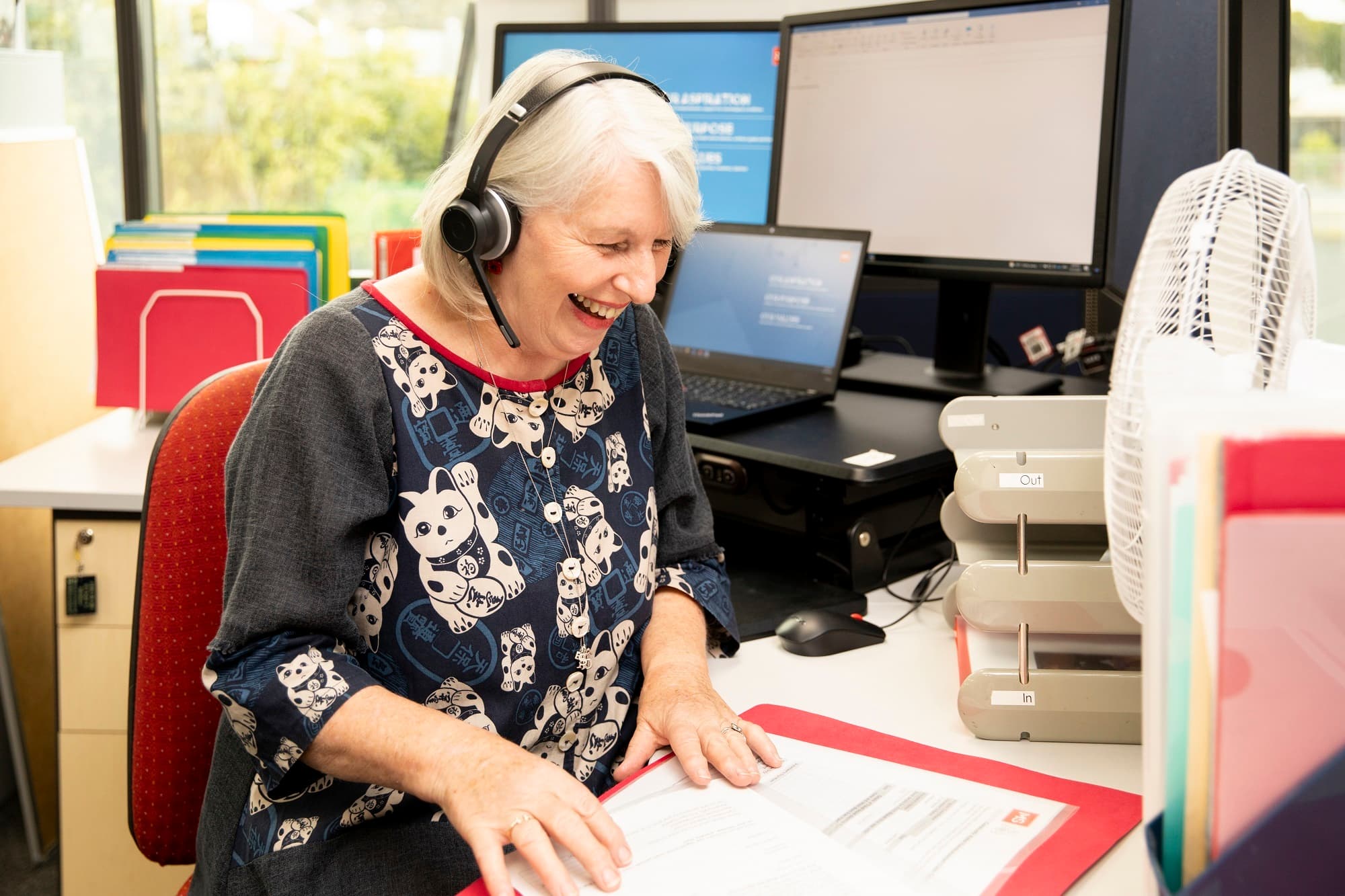It’s normal to have periods where you may feel down or even depressed – particularly after difficult or stressful moments. If you’ve been diagnosed with multiple sclerosis (MS), you may experience a range of emotions, such as feeling sad or a sense of loss.
However, if you’re feeling these symptoms consistently or it’s impacting your daily life, it’s important to seek help from your GP (general practitioner) or a mental healthcare provider.
To talk to someone who understands MS and how you might be feeling, you can also contact us on 1800 042 138. You don’t need an appointment. Our team is available from 8am to 6pm, Monday to Friday and can provide you with support and advice.
What to do if you're experiencing depression
Depression can happen to anyone at any point, and can occur for no known reason or from a mix of issues or events that impact how you feel. Feeling depressed is not a sign of weakness or something to be ashamed of. Seeking help and support to take care of your mental health and wellbeing is a sign of strength and can drastically improve your quality of life.
If you or someone close to you with MS has been feeling depressed, talk to a healthcare provider as soon as possible. This could include a GP (general practitioner), MS nurse or a mental health specialist.

MS and depression
There’s still a lot to be learned about the relationship between MS and depression. However, we do know:
- Depression is common for people with or without MS
- Depression can be flared up as a result of life stresses or situations
- MS damages the protective nerve fibres in the brain, which can affect emotional expression and control, mood and depression
- Depression may be linked with changes in the body’s cells and immune system
- Depression can be a side effect of certain medications, such as steroids
Ways to improve your mental health with MS
- Get outside for some fresh air and sunshine
- Keep a diary to track and reflect on how you’re feeling. This can help you recognise risk factors for triggers and avoid episodes
- Exercise regularly
- Stay in touch with friends, family and support networks
- Seek professional help and keep in regular contact with your medical team
- Practice mindfulness and try to manage daily stresses more calmly
- Avoid addictive substances, such as alcohol
- Find hobbies or volunteering opportunities to connect with other people
Short course: Mental Health and MS
Self-paced, 1.5-2 hours per module, completion certificate provided, FREE
Mental Health and MS is a free online course to increase your understanding of how anxiety, depression and MS interact to affect the lives of people with MS. It also provides practical tips for improving mental health. Across three course modules you will hear from a range of MS experts, including people living with MS, clinical psychologists and neurologists. The course was developed by the MS Research Flagship, Menzies Institute for Medical Research at the University of Tasmania in collaboration with the MS community.
PDF, 182kb
Learn more about MS
Support and services
We offer a wide range of services and support to help you manage your health and wellbeing – so you can maintain your lifestyle and achieve your goals.

Newly diagnosed
Wondering where to go after receiving an MS diagnosis? Find the information and support you need to live well.

Resource hub
Find everything you need to know about living with MS – from managing symptoms and your emotional health to navigating employment and the NDIS.

Speak to someone who understands

